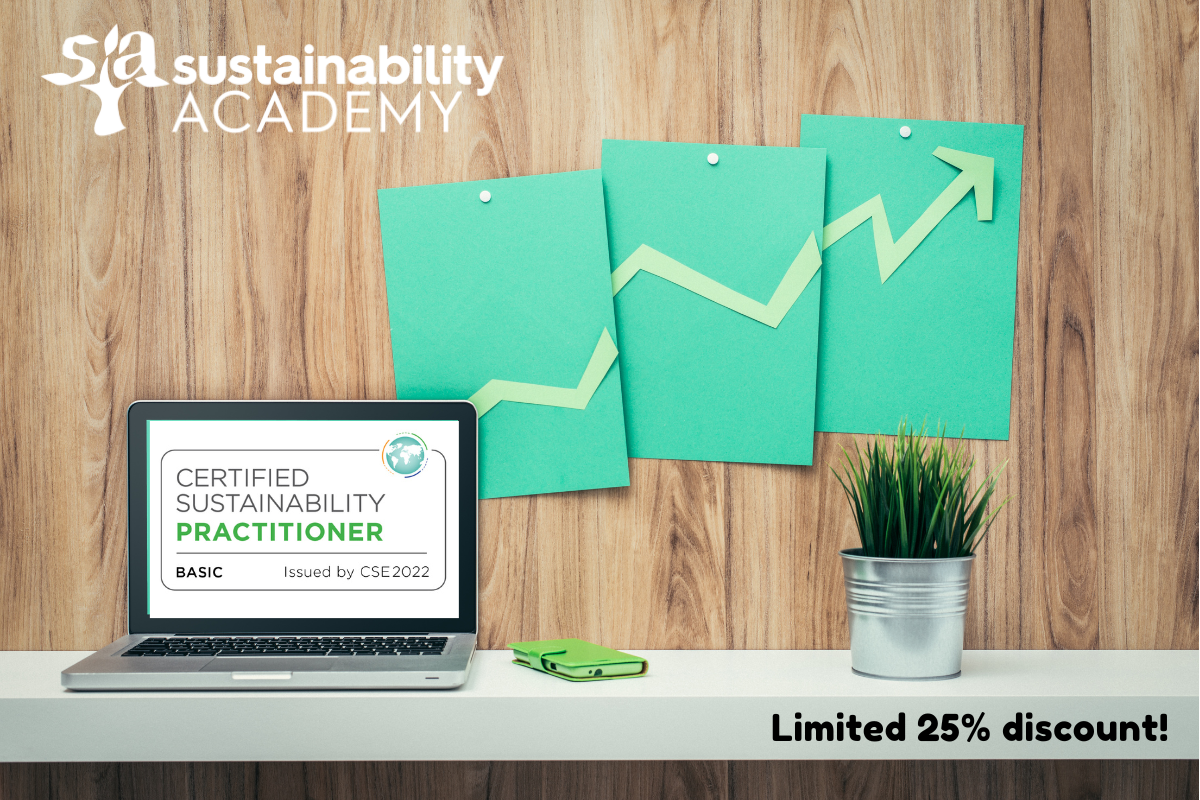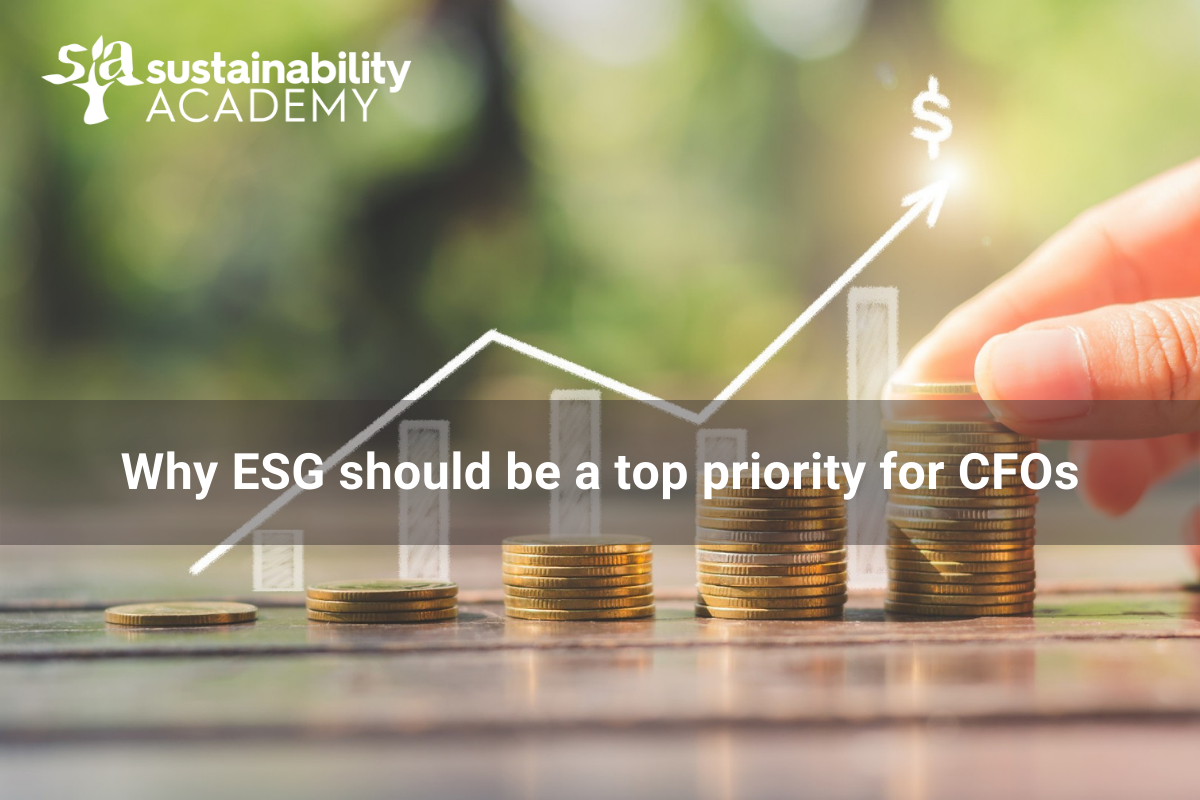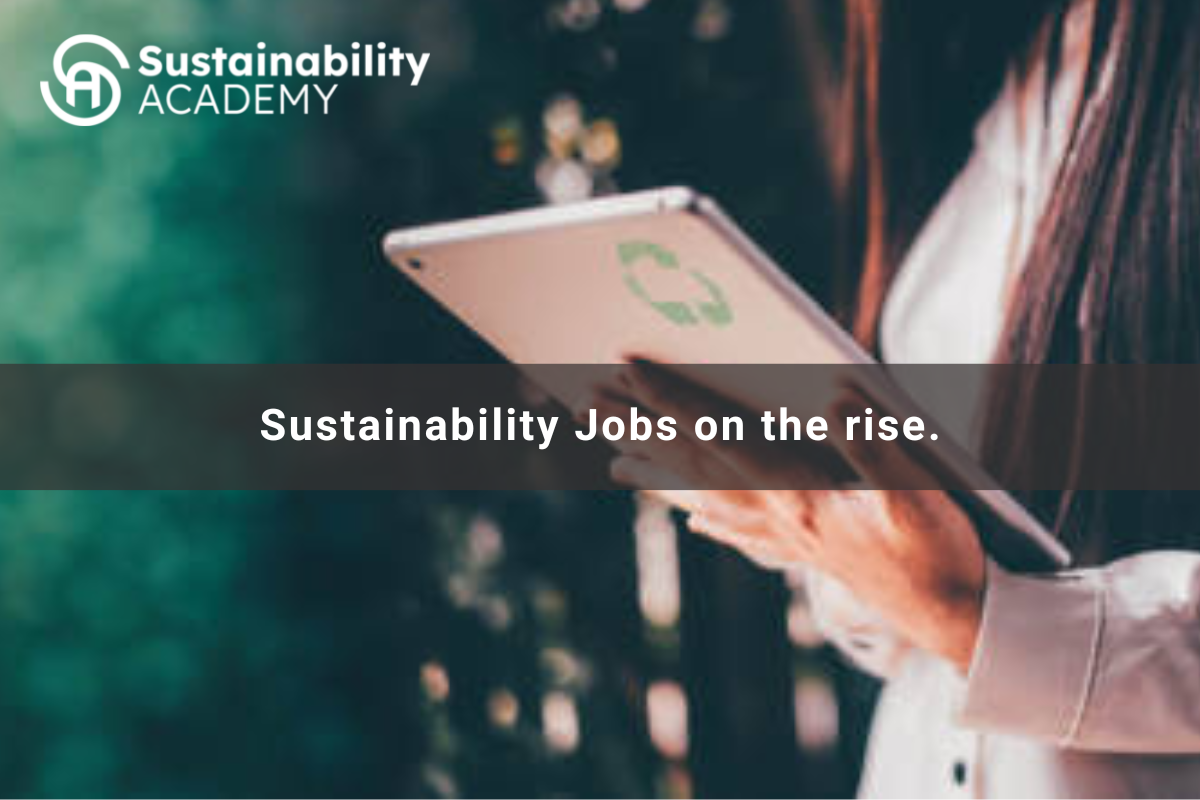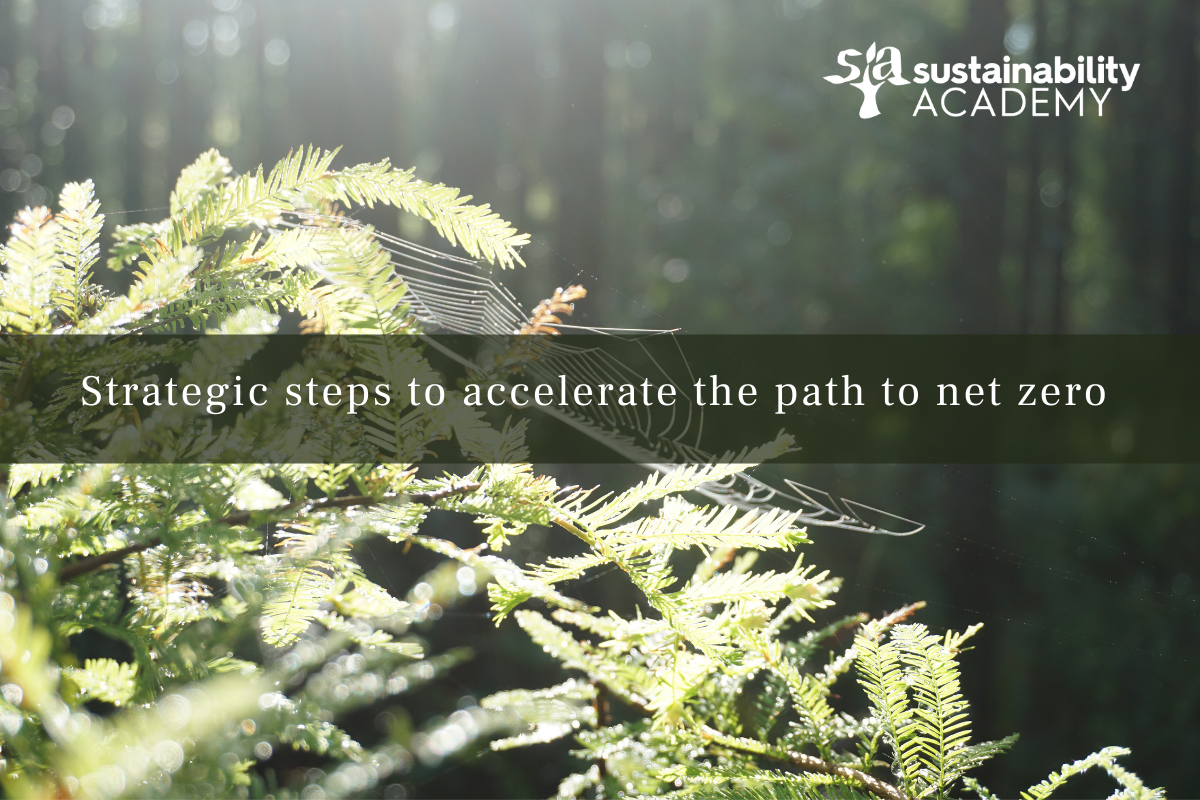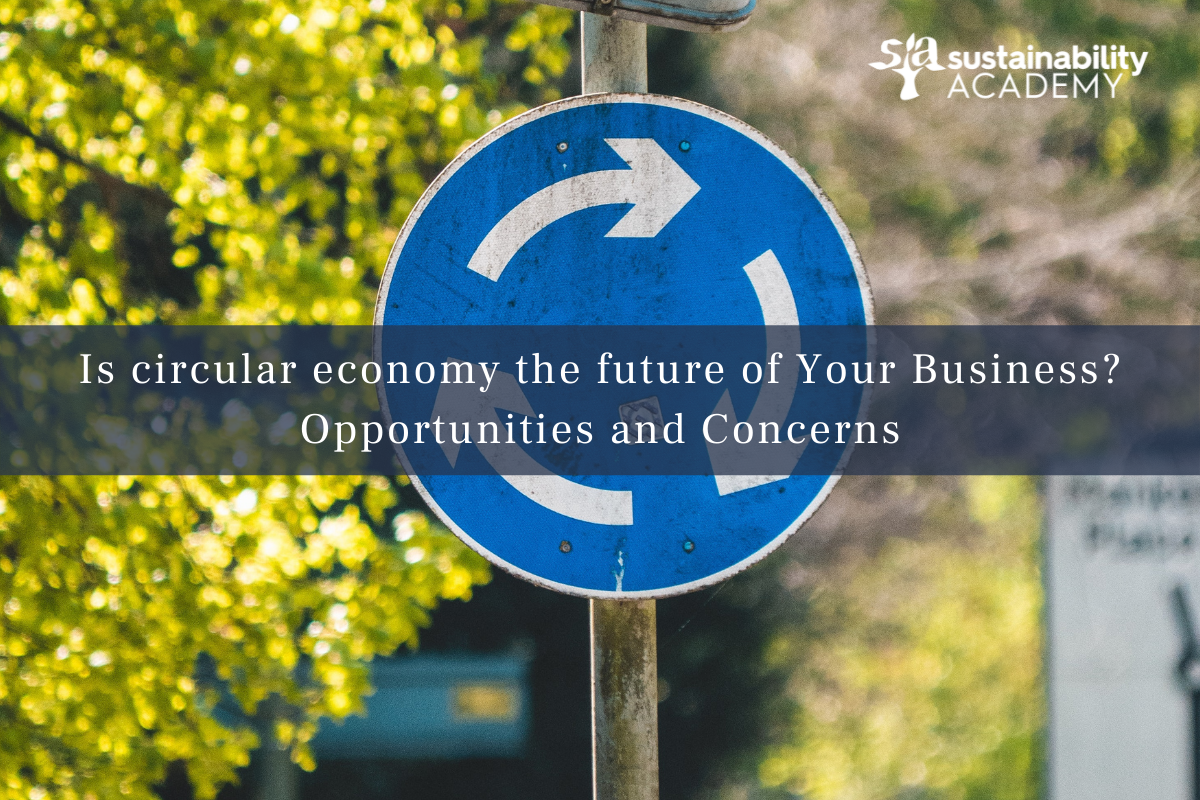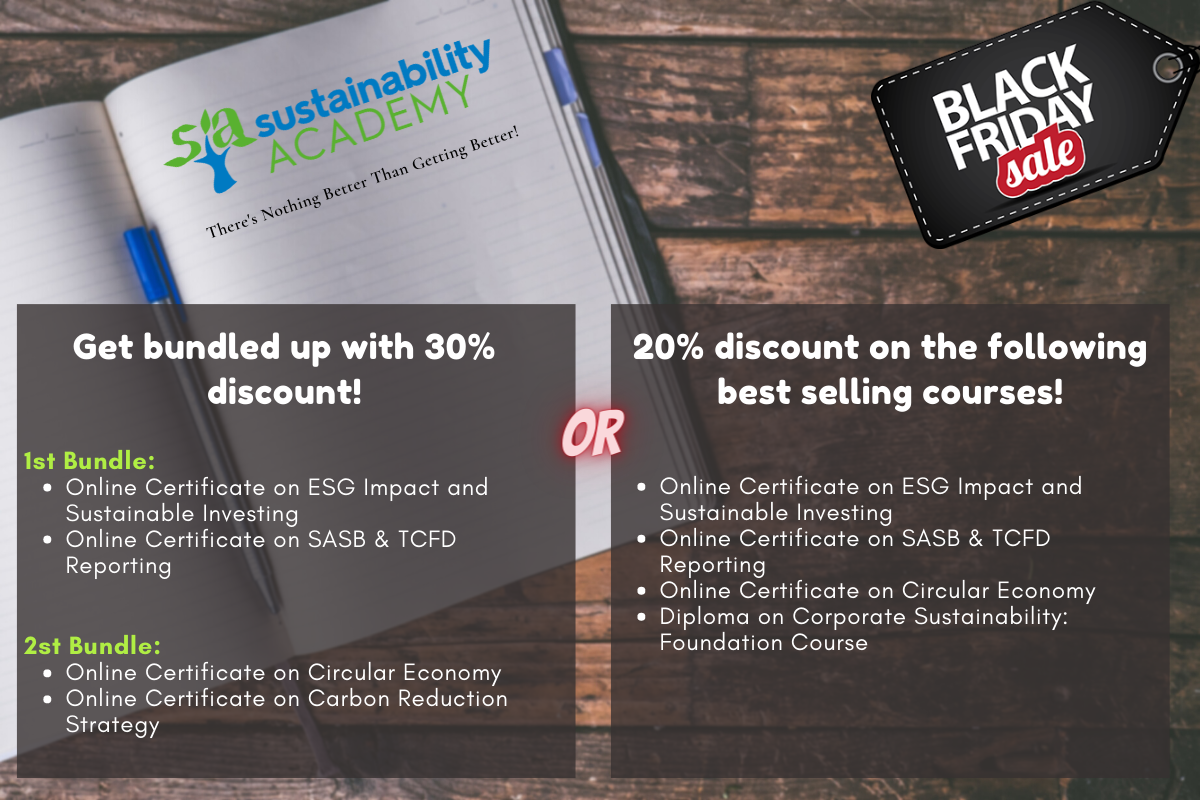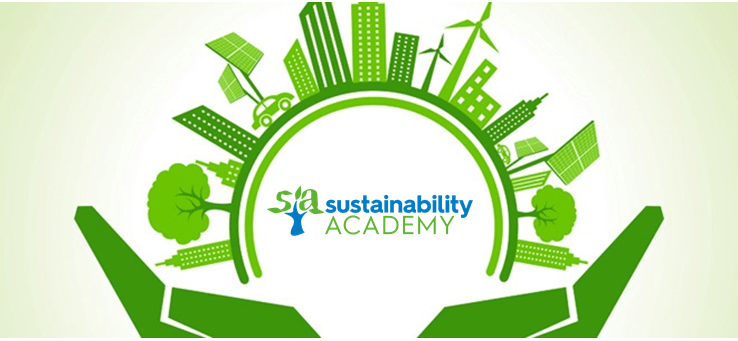The way that a company performs on ESG issues has become critical as more investors demand ESG reports. CFOs are not just financial leaders, but when it comes to translation of financial results of metrics and KPIs, they have the best perspective for reporting to investors.
Of course, keeping up with the changing regulatory landscape is not an easy task, however, when it comes to numbers, CFOs and the finance team are the “reporting gatekeepers”. This provides them a huge opportunity to become ESG leaders. No wonder why 68% of CFOs globally take responsibility for their organisation’s ESG performance.
To have a better understanding on CFO’s role on ESG, take a look on four reasons.
ESG and finance are interconnected
CFOs with in-depth knowledge of sustainability strategies can be critical to retain the balance between financial and sustainability measurements. They have the skills needed to track an organisation’s non-financial metrics and link them to financial information.
Sustainability metrics impact finance KPIs
Every CFO should be able to understand how to measure and report on ESG, because such metrics can provide business opportunities, attract investors and offer a competitive advantage. They can also drive better capital allocation by bringing ESG into decision making process.
Risk management falls under finance’s oversight
Risk management and cost optimisation are skillsets found in finance team and CFOs have the ability to incorporate sustainability into enterprise risk assessments. ESG should be a part of an organization’s overall enterprise risk management strategy, by being monitored, mitigated and addressed.
CFOs have a key role in managing reporting frameworks
A variety of different reporting frameworks exist, ranging from basic mandatory reporting to wide-ranging frameworks such the Sustainability Accounting Standards Board (SASB), which maps 77 industry-specific metrics. CFOs are in the best position to determine which measurements are the most useful for evaluating and reporting their company’s ESG performance.
Are you looking to take your esg career to the next level? Register now to our newest course “ESG for CFOs, IRs and Fund Managers” with our welcoming 20% discount until June 30.
For more information on the discount code, please contact [email protected]
Sustainability jobs on the rise
As more companies commit to ESG practices and business leaders are reimagining their entire working models, sustainability jobs are in demand. All kind of organizations are constantly trying to bring sustainability, supply chain and environmental health concerns to their existing operations by posting new jobs related to sustainability. The pressure from environmental, social and governance (ESG) investors and policy makers are driving this demand.
Sustainability jobs now span across a wide range of industries, from renewables to finance, and the demand is growing even faster in the following sectors: energy and mining, healthcare, agriculture, transportation, construction and manufacturing. More importantly, the demand for job skills in sustainable fashion, oil spill response, ecosystem management and proficiency in solar systems grew by more than 50 percent between 2016 and 2021. Furthermore, some of the fastest-growing sustainability jobs are in sustainable procurement.
Specifically in Europe, auto industry jobs are rising faster than other, with the demand for skills in electric vehicles going up by 51 percent between 2015 and 2021. Sustainability consultants are also in great demand, whether as independent consultants or as part of a company’s sustainability department.
The International Labor Organization (ILO) estimates that 24 million jobs worldwide could be created by the sustainable economy by 2030 alone. According to a recent report from LinkedIn, the shift to hiring for the sustainable economy is already underway worldwide. Τhe Bureau of Labor Statistics adds that jobs in environmental science and specialties are projected to grow 8% the next decade.
In US, the number of jobs in renewables has increased by 237 percent over the last five years. Taking into account Canada’s labor market, 315,800 people worked sustainability-related jobs in 2020, up from 60,000 in 2013, and almost 80,000 more workers will be hired by 2025, according to ECO Canada, an environmental work force organization that collected the data.
However, despite the fact that jobs in sustainability increase, employers tend to focus on specific skills, rather than university degrees. What they require is a deep understanding of the economic, social, and environmental intersection. As presented in the last World Economic Forum’s Future of Jobs Report, employers estimate that 4 in 10 workers will need to be reskilled.
The Sustainability Academy offers unique certified courses for professionals on all fields of Sustainability and ESG, such as Corporate Sustainability, Carbon Reduction & Net Zero Strategies, Sustainability (ESG) Reporting, ESG Impact and Sustainable Investing, Circular Economy, SASB and TCFD Reporting.
The courses provide a certified qualification to professionals so they can meet the high demands of their positions and the requirements of stakeholders.
For more info contact us at [email protected]
How to” walk the talk” and follow through on your corporation’s climate commitments
While climate targets and net-zero planning are gaining momentum globally, many of the world’s largest companies are failing to take significant enough steps to meet their pledges to reduce the impact of their greenhouse gas emissions in the decades ahead. Many companies present vague information on the scale and potential impact of their emissions reduction measures or overstate their use of renewable energy. It can also be very challenging to track emissions across supply chains indeed.
The COVID-19 pandemic provides an unprecedented opportunity to stress-test our ability to cooperate, learn more and adapt in the face of deep uncertainties and rising risks. Risk-informed business models are key, this is why the Environmental, Social and Governance (ESG) approach, now is already so prevalent in the business world.
Since the whole world decides that everything has to be digital, renewable and green, this creates tensions in the supply chain and generates inflation. Natural gas prices for example have skyrocketed, rising to levels that have been as much as six times higher than a year ago.
The unpredictable energy outlook has left many corporate leaders wondering how to shield their businesses from price rises and power outages in order to navigate their decarbonization pathway. Cumulative investment is also needed to fulfil the key energy-related components of the UN SDGs.
Sector coupling might be the right way through: how energy-consuming sectors can be linked to energy-producing sectors to make the most of all available renewable power. Sector coupling projects stand at the intersection of different value chains, where different methodologies might apply.
Governments worldwide are now spending vast sums of money on the economic recovery which will significantly influence states’ ability to deliver a green and resilient recovery. For the resources to be spent most effectively, the workforce would have to gain new skills.
The Center for Sustainability and Excellence (CSE) innovates in sustainability training and consulting for more than 16 years offering the most affordable specialized certified online courses through the globally awarded Sustainability Academy. Fortune 500 companies trust Sustainability Academy courses to educate their staff and reach communities with targeted sustainability interests such as supply chain, NGOs and startups.
More than 8,000 executives from leading organizations including Google, NASA, Coca-Cola, Timberland, the Federal Reserve Bank of New York, L’Oréal, ExxonMobil, Hartford, T–Mobile, Procter & Gamble, and Macy’s have been certified in the field of Sustainability ESG by the Center for Sustainability and Excellence (CSE).
For more information and group discounts contact us at [email protected]
4 Strategic steps to accelerate the path to net zero
Just before 2021 ended, more that 680 of the world’s largest corporations claimed net-zero emissions goals. The number of net zero targets that have been set by companies is still rising, covering almost 80% of the global economy, according to Net Zero Tracker. This private sector leadership is giving policymakers the confidence to raise national targets, facing now an unprecedented pressure from investors.
Major emitters like United Airlines, BP, Nestlé, and Dell have pledged to reduce their impact on climate change and reach net-zero carbon emissions by 2050. Moreover, NatWest, a major retail and commercial bank in the United Kingdom, plans to invest £100bn in climate and sustainable funding by the end of 2025, which could contribute 50% of the UK’s net zero target.
If world leaders want to have a chance of achieving the Paris goal, net-zero is the only way. However, according to the New Climate Institute and the non-profit Carbon Market Watch, real action is still lagging and some of the world’s biggest companies may not even get close to achieving their claimed goals.
How can companies advance toward net-zero?
Zero-carbon skills are required: A net-zero economy will require different skills. To achieve the target of being zero carbon by 2050, higher levels of formal education, work experience and training are needed.
Understanding where your company currently stands: Assess Scope 1 and Scope 2 emissions and quantify all other indirect emissions from the value chain (Scope 3). Since they are not under your company’s direct control, the quantification and reduction process are not an easy task.
Set your roadmap: Setting a roadmap secures a better financial future. However, defining a vision and assessing your company’s emissions is not enough. Everything should be translated into measurable improvements. Unfortunately, too many net-zero pledges fail to account properly for all GHG emissions.
Tracking the progress: Recognize the gaps to improve data availability and accuracy. Companies should keep in mind that transparency is a key element of good practice in net zero target setting. A great number of companies lack the integrity needed for decarbonization, hiding critical information.
Lead your organization along the Net Zero journey. Sustainability Academy provides a leading Qualification as well as the opportunity to expand your knowledge in the most crucial fields of Sustainability.
Check out our certified online courses here.
Reach us at [email protected]
As ESG becomes a more prominent business priority, it will also become a growth opportunity for firms looking for new revenue streams and effective ways to increase their sustainability performance. To get out of their ESG confusion, many firms choose to work closely with an ESG consultant, an expert who will provide the professional help, specialized tools and coaching on how the company can integrate ESG practices and gain a competitive advantage.
Most small and medium enterprises find it difficult to conceptualize the ideas of risks and materiality assessment while also preparing an accurate Sustainability (ESG) report. With so many ESG topics for executives to consider, it is also challenging for them to narrow their focus on the appropriate trends throughout the 2022. These challenges can be avoided by introducing an ESG consultant to help your team move further.
These are the key issues that will gain traction in 2022 and ESG consultants need to look out for.
- Greenwashing
Stakeholders apply pressure on companies to translate their talk into meaningful action. Regulators will also begin to turn the screw by enforcing mandatory disclosures that force companies to move beyond ‘Green’ marketing to meaningful action.
- Insurers will appoint Chief Sustainability Officers to lead ESG initiatives
A sign of the growing importance of ESG & Sustainability issues to global corporations is the appointment of Chief Sustainability / ESG officers to executive management teams. Some of the world’s largest insurers have already moved to installing these roles – in 2022 we will likely see other industry players following suit.
- Procurement and supply chain decision making
Companies can no longer focus solely on their own operations to mitigate ESG. To improve their supply chain resilience, they should focus on the analysis of the supply chain and procurement processes to identify areas of concern related to ESG risks. Given the complexity of the world’s largest companies’ supply chains, many are turning to external consulting services for help.
- Carbon offsetting
Companies are facing pressure from stakeholders to not only set net-zero targets for carbon emissions, but to demonstrate their progress towards meeting these targets too. One solution that many companies have started to implement is carbon offsetting, or the process of compensating for CO2 emissions by participating in schemes designed to make equivalent CO2 reductions from the atmosphere. Examples of such schemes are reforestation, methane capture at landfills, wastewater treatment facilities and investing in energy efficiency technology.
- ESG investment funds will push capital flows into Asia and emerging markets
ESG investing has dominated the world of finance over the past few years. To 2022, the flow of investment from ESG funds has been concentrated specifically in North America, but as the ESG investing landscape continues to become progressively more crowded, many ESG investors may switch their focus to Asia and emerging markets in search of returns. More transparency and reported data will keep on the challenge for sustainable investing high in North America, as it will be easier for investors to measure and manage risk.
Want to join the fast-growing Sustainability consulting industry and become a qualified consultant in this field? In CSE, we provide a leading Qualification as well as the opportunity to expand your knowledge, capacity and branding to offer Sustainability Consulting Services!
Check out our consulting scheme and we will be happy to provide you more information and welcome you to our consultants network.
Reach us at [email protected]
With the circular economy so closely linked with sustainable development, it seems logical that circularity is integrated into the core of production and consumption models. As such, the circular economy has never been a more important concept for the world to put into practice than it is today.
Circular economy practices such as reduce, redesign, recycle, and remanufacturing are directly aligned with achieving the United Nations’ Sustainable Development Goals (SDGs) 12 by employing new technologies and business models and reducing the number of unsustainable products.
How does circular economy contribute to sustainability? The future of Your Business
Recycling waste and creating materials that can be reused again is a key sustainability benefit. The advantages of a circular economy are the protection of the environment, reducing waste and the emissions of greenhouse gases.
Circular economy is a holistic approach which goes beyond a range of sectors including agriculture, energy, climate change, water, and sanitation. Indeed, utilizing circular economy practices across these areas, combined with social justice considerations, provides a unique framework for achieving the SDGs.
For businesses, the goal of wasting as little as possible brings exceptional opportunities for innovative technology and system planning. The circular economy opens opportunities for both profit increase and cost decrease. For example, remanufacturing hardware would be less expensive due to cheaper recycled materials.
Concerns when implementing the circular economy:
- Lack of recycling technology: Improvements in collection schemes and sorting technologies are essential to achieve higher recycling rates. Plastic waste recycling rates are ten times higher when collected separately, compared to mixed collection schemes.
- Poor business model plan: The circular economy concept (e.g., choosing the right online accounting software, creating products that can be upcycled, repurposed, and re-sold) fails to be integrated in a business model plan making it incomplete.
What are the economic benefits?
- Savings on material costs: The circular economy redirects waste to form new materials. This lowers raw material and production resource requirements. According to the World Economic Forum, a circular economy could save the EU up to $630 billion USD every year.
- Innovation and job opportunities: Jobs may be lost in more linear businesses; however new jobs will be created in fields such as recycling, services like repair and rental, or in new enterprises that spring up to make innovative use of secondary materials. These new jobs cannot be considered direct replacements, as they may be in different locations and require different skills.
Is your business ready enough to make a significant step forward in realizing a circular economy approach? Training has a critical role to play in enabling circular economy strategies.
Check out our course of Online Certificate on Circular Economy and benefit from an exclusive discount of 20% discount!
As we just celebrated Thanksgiving in the United States, it was a time for us at CSE to reflect and be grateful for the successful year we’ve had so far in 2021. We achieved a fast digital transformation to be able to support the continuous education of C-suite executives around the world for FORTUNE500 organizations, large multinationals and SMEs’ in a period of unprecedented difficulty for society and business, respecting the health and well-being of our programs participants.
This was once again a year in which we saw corporations expressing interest and willingness to be part of a more sustainable world. The Center for Sustainability and Excellence (CSE) is pleased to help organizations on their sustainability ESG journey.
The number of trained sustainability (ESG) practitioners certified with our Sustainability ESG designation is a testament of their loyalty. We held 16 programs in 2021, and over 1,000 Sustainability Executives and Managers joined us. For example, we tackled the hard sustainability issues related to climate leadership, climate related regulations, ESG challenges, CFOs’ and Investors’ concerns, sector-based business models, supply-chain resilience, adaptation strategies, science-based targets. Furthermore, we presented solutions and actionable tools to help corporations embed sustainability (ESG) into the core of their business strategy and recovery.
CSE’s research work continued in 2021and the new annual Research into ESG, and Reporting Trends in North America will be concluded soon. The research results will be featured at CSE’s Advanced Edition, Certified Sustainability ESG Practitioner Program, Digital Version, on February 24-25 & 28, 2022.
CSE has an ambitious agenda for 2022 to continue leading the shift and pushing forward corporate sustainability globally. We start the New Year strong, by bringing CSE’s flagship program, the Advanced Certified Sustainability ESG Practitioner Program, digital version to the US and Canada, tackling their own specific sustainability issues and challenges.
CSE is committed to continue supporting businesses towards their sustainability transformation amidst the global COVID-19 crisis and helping them thrive. The CSE’s Sustainability Academy (www.sustainability-academy.org) leads the way in Certified Specialized Sustainability (ESG) Education. Its global initiative, the Sustainability Academy, aims to provide affordable, specialized online education and coaching on the issues of Sustainability and Corporate Responsibility.
The Sustainability Academy offers the Online Diploma on Corporate Sustainability and a series of specialized programs on Circular Economy, Sustainability Reporting, Carbon Reduction Strategy and ESG Impact and Sustainable Investing.
There are also special In-house Programs for organizations, who recognize that investing in their human capital through education is the most important determinant for growth and excellence in Sustainability. To confirm this claim, recent research has demonstrated that organizations with a strong learning culture can outperform their peers. The Academy aspires to reach 100,000 professionals by 2030!
Thank you to all our friends, colleagues, practitioners and followers. Don’t miss any CSE news: subscribe to our newsletters, follow us on social media and refer us throughout your networks.
Stay tuned for our upcoming trainings in 2022 and insights, which starts with the Certified Sustainability (ESG) Practitioner Program, Advanced Edition on February 24-25 & 28 and the Leadership Edition on April 7-8 & 11, 2022.
Sustainability Academy is in a total Black Friday mood and invites you to be part of it! Get a 30% discount until November 26, when you order the coupled certified courses or use your exclusive coupon code (BF20) to register to one of our best-selling courses.
The Sustainability Academy offers unique Certified courses for professionals on all fields of Sustainability and ESG, such as Corporate Sustainability, Carbon Reduction, ESG Reporting, ESG Impact and Sustainable Investing, Circular Economy, SASB and TCFD Reporting. The courses provide a certified qualification to professionals so they can meet the high demands of their positions and the requirements of stakeholders.
Thanks to their innovative methodology and constant connection to global trends and challenges, the courses are designed to help professionals who want to make a career shift or scale up their skills in Sustainability and become part of the global change, towards a better, safer, greener, and more just future.
With COP26 announcements and pledges, it seems the world is taking historic steps and governments, banks, financial institutions, and organizations have realized the urgency for serious measures.
A major step forward is the establishment of high-quality, transparent, and globally comparable sustainability (ESG) and climate disclosure standards, which are intensely required by investors.
Another step forward is that more than 20 countries have committed to end financing for fossil fuel projects abroad. UK has taken the lead, followed by Denmark, Finland, US and Canada. Italy has also signed on to a deal to end overseas financing for fossil fuels, reversing its initial negative position.
How are you planning to be part of this change and lead your organization to a sustainable transformation?
What are your needs? Make the best choice! Add one of the suggested bundle courses to your cart and get the 30% discount directly!
for more information: [email protected]
Being among the first companies worldwide to provide professional Executive education and specialized advisory services for Sustainability, Circular Economy and Corporate Responsibility, the Center for Sustainability and Excellence was set to innovate leadership and create a global new trend in certified executive training in Sustainability and ESG. More than 1,700 VPs of Sustainability and other Executives that represent 90% of FT 500 Firms have trusted CSE and the Sustainability Academy unique programs for their education.
In 2016, CSE created the Sustainability Academy, an innovative online platform for organizations to maximize their Social, Environmental and ESG Impact. The goal is to certify 100,000 professionals by 2025 and be the driving force of change for Business towards a more Sustainable and Net Zero future.
The Sustainability Academy offers unique Certified courses for professionals on all fields of Sustainability and ESG, such as Corporate Sustainability, Carbon Reduction, ESG Reporting, ESG Impact and Sustainable Investing, Circular Economy, SASB and TCFD Reporting. The courses provide a certified qualification to professionals so they can meet the high demands of their positions and the requirements of stakeholders.
Thanks to their innovative methodology and constant connection to global trends and challenges, the courses are designed to help professionals who want to make a career shift or scale up their skills in Sustainability and become part of the global change, towards a better, safer, greener and more just future.
It is no news that new roles and jobs are emerging to drive ESG and circular economy transformations – new global legislation around these issues proves beyond any doubt the rise of a new business model. These transformations require a well-trained workforce.
“Education is a key driving force of change towards more Sustainable Business and a better future for our planet. Only qualified C-Suite Executives and workforce can make it happen”, says Nikos Avlonas, President and Founder of CSE, best-selling author and sustainability pioneer. Based in part on his work with the Sustainability Academy, the Silicon Valley Community Foundation, the largest community foundation in US and globally, honored the President of CSE as Practitioner of the Year for Corporate Responsibility, together with Google, Inc., winners of the corporate award in 2018.
Through the Sustainability Academy, CSE has succeeded in qualifying managers in thousands of organizations, such as Netgear, US Forestry Service, Coca Cola, Pepsico, Workday, GM.
CSE is approved by CMI (Chartered Management Institute), it is also Green America certified business, a PRI training partner and CPD certified.
For more information on how you can promote the initiative or join in the effort, contact [email protected]

